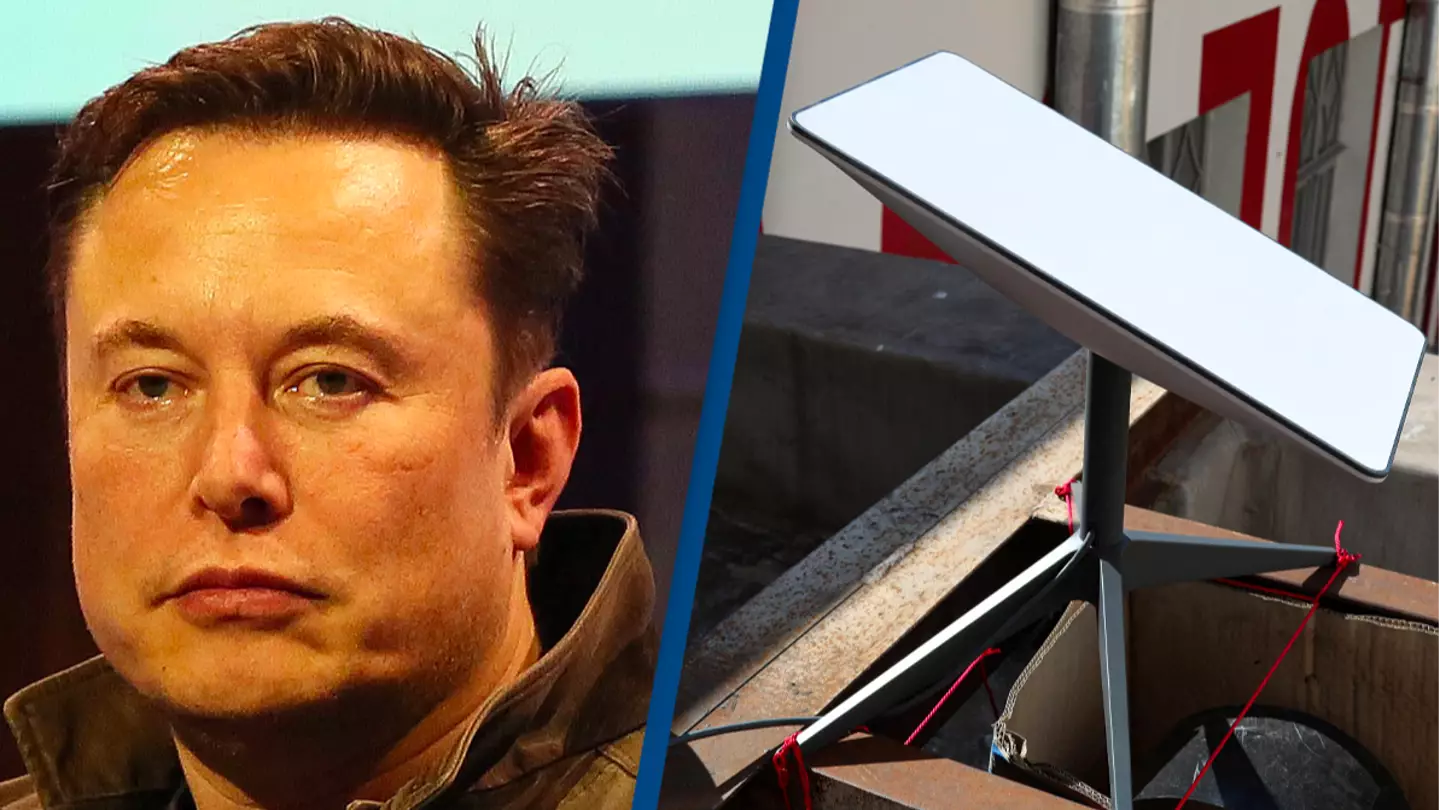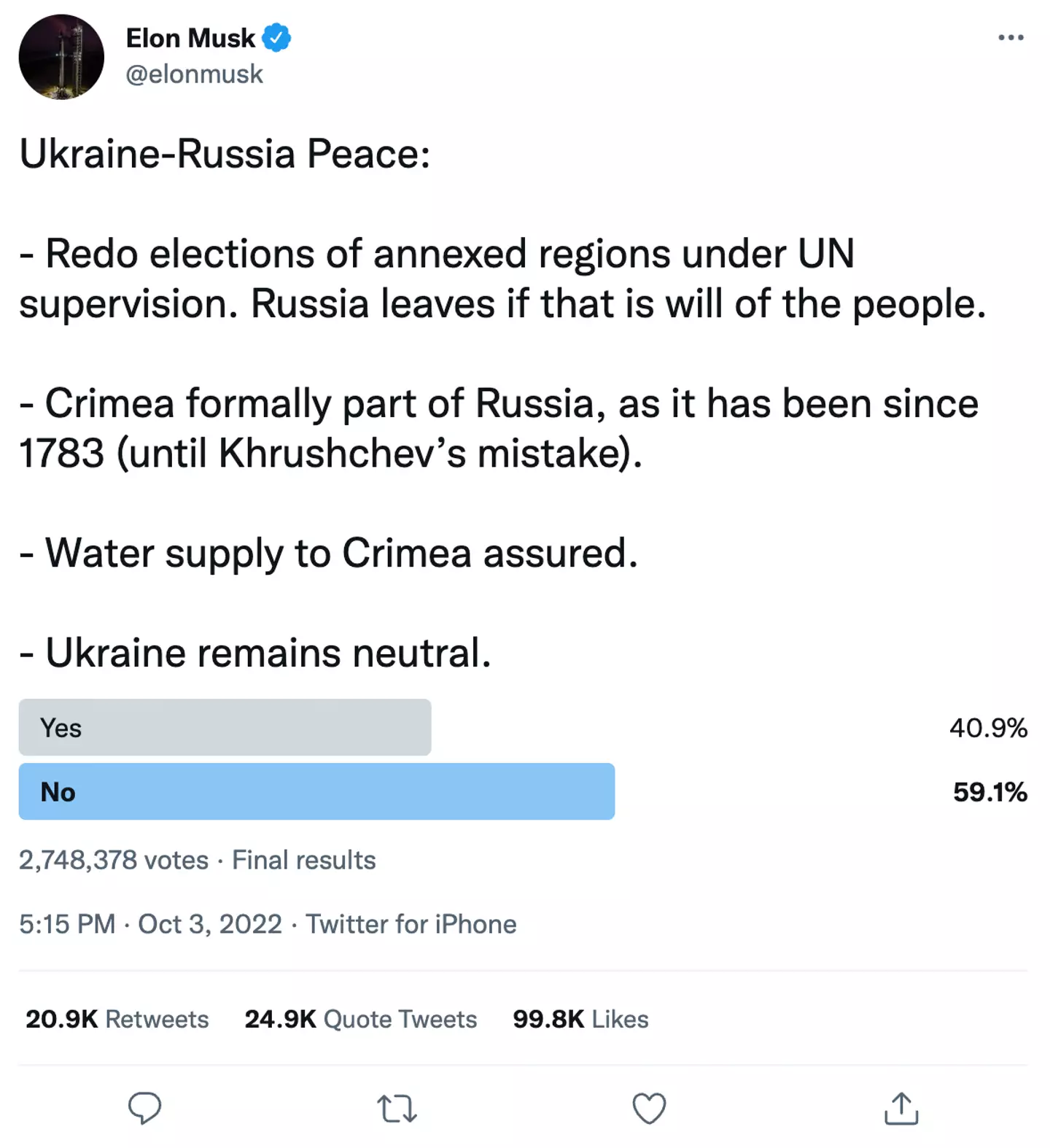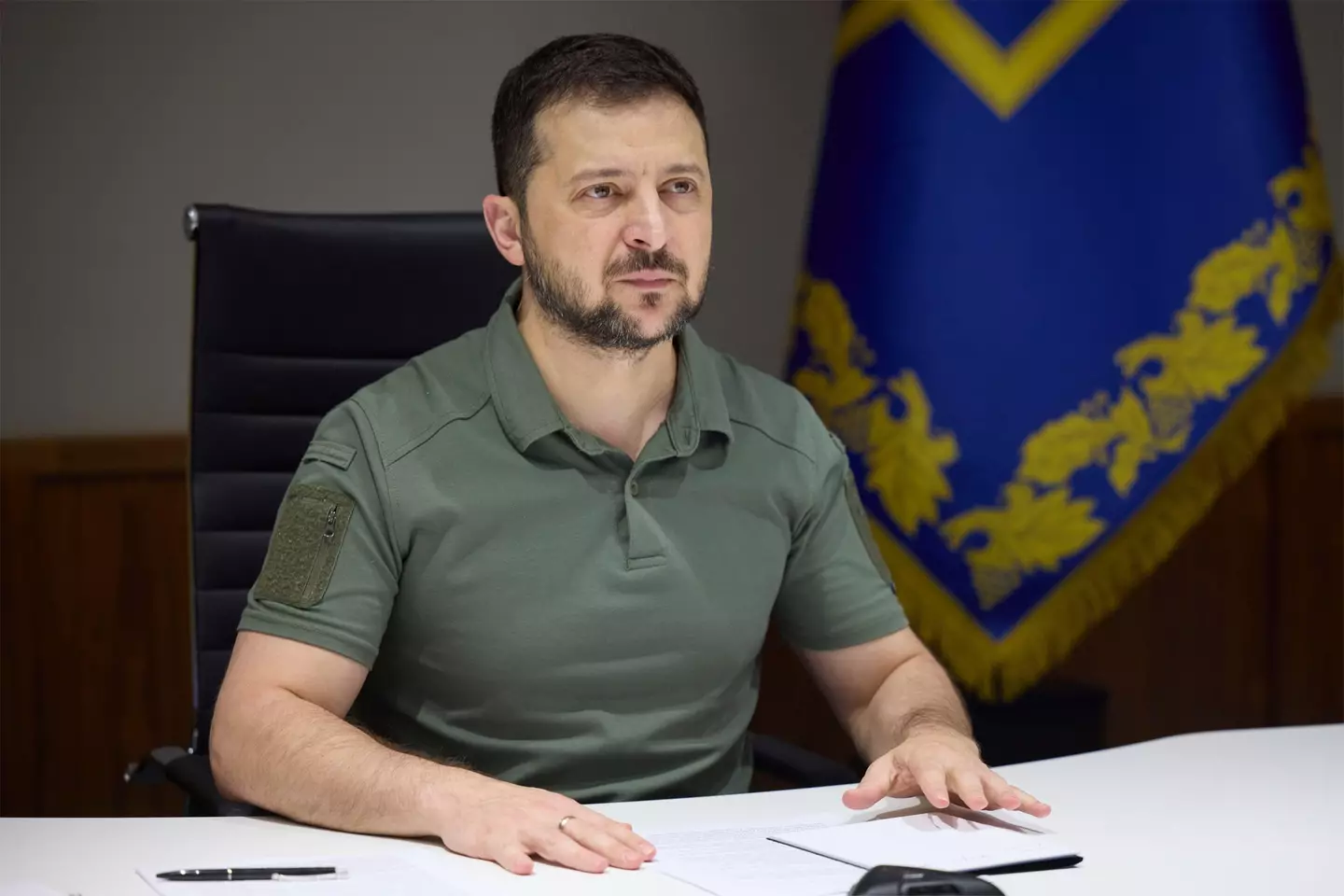
Elon Musk's SpaceX has said it can't continue funding the Starlink service in Ukraine, according to CNN.
Billionaire Musk is the founder of SpaceX, and following Vladimir Putin's invasion in February, his company has been assisting Ukraine by sending out Starlink terminals.
The satellite network aims to provide high speed broadband through a network of terminals, ensuring clear and reliable lines of communication that could otherwise have been jeopardised by airstrikes.
Advert
However, it seems the invaluable support could come to an end, as a letter sent from SpaceX to the Pentagon states that the company may stop funding the service in Ukraine without tens of millions of dollars of monthly support from the US military.
"We are not in a position to further donate terminals to Ukraine, or fund the existing terminals for an indefinite period of time," SpaceX's director of government sales wrote to the Pentagon in the September letter, obtained by CNN.
It comes after Musk tweeted last week that the 'operation has cost SpaceX $80M & will exceed $100M by end of year'.
After a shipment of terminals arrived earlier this year, Musk was thanked by vice prime minister Mykhailo Fedorov; however, his relationship with government in Ukraine has since soured.
The Tesla chief executive argued in a tweet last week that to reach peace, Russia should be allowed to keep the Crimea Peninsula that it seized in 2014.
He also said Ukraine should adopt a neutral status, dropping a bid to join Nato following Russia’s partial mobilisation of reservists.

Musk also crossed red lines for Ukraine and its supporters by suggesting that four regions Russia are moving to annex following Kremlin-orchestrated 'referendums' denounced by the West as a sham should hold repeat votes organised by the United Nations.
Musk noted that Crimea was part of Russia until it was given to Ukraine under the Soviet Union in the 1950s and said a drawn-out war would not be likely to end in a resounding Ukrainian victory.
Ukrainian leader Volodymyr Zelenskyy has pledged to recover all the terrain conquered in the war and considers Crimea as Ukraine's to reclaim as well.
Musk also launched a Twitter poll asking whether 'the will of the people' should decide if seized regions remained part of Ukraine or became part of Russia.
In a sarcastic response, Zelenskyy posted a Twitter poll of his own asking: "Which Elon Musk do you like more? One who supports Ukraine or one who supports Russia."

Musk replied: "I still very much support Ukraine, but am convinced that massive escalation of the war will cause great harm to Ukraine and possibly the world.
"Russia is doing partial mobilisation. They go to full war mobilisation if Crimea is at risk. Death on both sides will be devastating."
In a further tweet, he said: "Russia has (over) three times population of Ukraine, so victory for Ukraine is unlikely in total war. If you care about the people of Ukraine, seek peace."
The Kremlin itself chimed in, praising Musk for his proposal but warning that Russia would not backtrack on its move to absorb the Ukrainian regions.
"It's very positive that such a person as Elon Musk is trying to look for a peaceful settlement," Kremlin spokesperson Dmitry Peskov said.
If you would like to donate to the Red Cross Emergency Appeal, which will help provide food, medicines and basic medical supplies, shelter and water to those in Ukraine, click here for more information
Topics: US News, Ukraine, Russia, Elon Musk, SpaceX, Technology, Politics